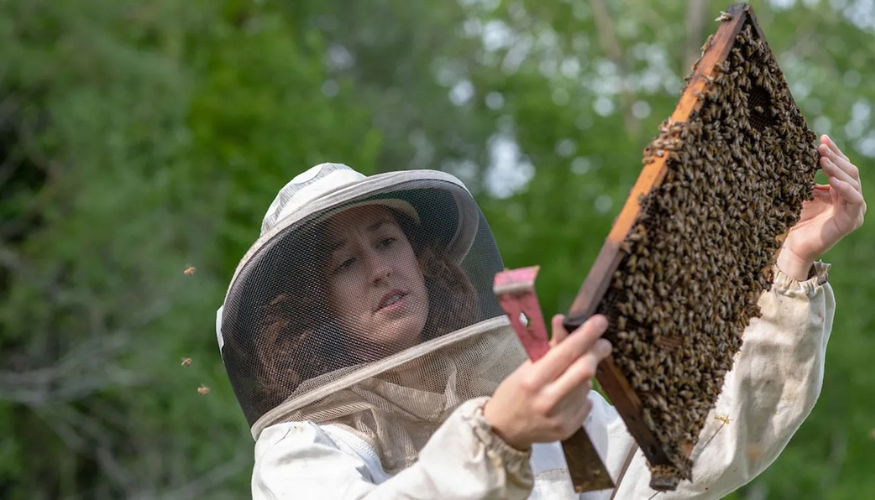University of Vermont scientist promote test for beekeepers to identify bee colonies most suited to thrive

New England Council member, the University of Vermont, recently released a study offering hope for stemming the recent debilitating losses of bees in the country and suggestions for breeding more disease-resistant colonies. Beekeepers across the U.S. lost over 55% of their colonies in the past year, the highest loss rate reported since records started being kept in 2011.
The Vermont Bee Lab at UVM, led by Samantha Alger, works with beekeepers to breed “hardy, disease-resistant” honeybee colonies by using a test (UBeeO) developed by researchers at UNC Greensboro to help identify “hygienic” behaviors in colonies. In their research, The Vermont Bee Lab found that the UBeeO testing method detects more pathogen loads than was previously thought, allowing the UVM researchers to utilize the test to better analyze methods to encourage disease-resistant colonies.
“It’s definitely more desirable for a beekeeper to have bees that are better adapted at taking care of their diseases themselves rather than using chemical treatments and interventions to try to reduce these pathogen loads, which of course may have negative impacts on the bees. … UBeeO has been known to identify colonies that are able to better resist Varroa mites, but it had not been used to look at other pest or pathogens. We found this new assay could be used to identify colonies that are resistant to these other stressors,” said Algers.
The New England Council commends the University of Vermont and the Vermont Bee Lab on this work, which will help rebuild the U.S. bee population.
Read more in the Burlington Free Press and in the UVM press release.